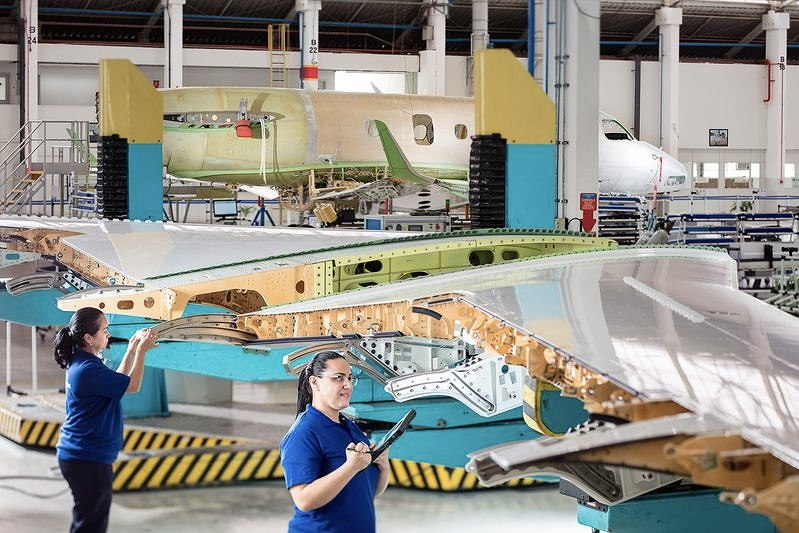Advent Technologies Holdings, Inc., an innovation-driven leader in the fuel cell and hydrogen technology space, is pleased to announce significant performance breakthroughs for its Membrane Electrode Assembly technology (Advent MEA G2). The Advent MEA G2 technology has already been provided for testing to select strategic partners, in the automotive and aerospace industries. It is being developed within the framework of L'Innovator, the Company's joint development program with the U.S. Department of Energy's Los Alamos National Laboratory (LANL), Brookhaven National Laboratory (BNL), and National Renewable Energy Laboratory (NREL).
HT-PEM fuel cell technology enables the use of green eFuels (eMethanol), renewable natural gas, or hydrogen on board. Furthermore, the HT-PEM fuel cells are highly efficient in terms of thermal management and highly resilient under extreme environmental conditions. The problem with the legacy HT-PEM MEAs was that they'd exhibit low power density and low lifetime compared to LT-PEM fuel cells. Advent has been developing the G2 MEA to overcome these problems.
The MEA developed with LANL technology is now in its second generation and has achieved the following results vs. state-of-the-art "Legacy MEAs":
1. 2.5x Power Density vs. Legacy MEAs
Advent MEA G2 operates ideally at 160oC with nominal power produced at 0.35W/cm2 (0.58V@0.60A) vs. 0.14W/cm2 for the legacy MEAs. The Advent MEA G2 shows further potential for power generation when operating under pressure (1bar-2bar). Advent targets to achieve a performance of 0.7W/cm2 in the G3 version of the MEA with the target of 0.7V@1A with pressure.
The power density of Advent MEA G2 is still lower than LT-PEM MEAs, but the advantages of using liquid fuels/eFuels (methanol/eMethanol) on-board, not carrying compressed hydrogen, and the elimination of water management and complex thermal management components, results in a simpler system. The expectation is that the HT-PEM fuel cells developed with Advent MEA will be on par with LT-PEM in cost and weight while addressing the significant disadvantages of LT-PEM technology. Specific stationary, portable, marine and off-grid power applications are ideal for use with the Advent MEA G2.
"The off-grid, portable power and marine sectors need a liquid green fuel like eMethanol," says Dr. Chris Kaskavelis, Advent's Chief Strategy Officer. "It is highly inefficient to decarbonize these sectors with compressed hydrogen. We see many applications in off-grid environments, buildings, and marine where hydrogen would be impossible to deliver for financial or safety reasons. Using eMethanol (an excellent liquid green hydrogen carrier) allows the HT-PEM fuel cell to break the vicious circle. We can decarbonize these sectors with green hydrogen without investing in prohibitively expensive hydrogen transportation, dispensing, and liquefaction infrastructure. The benefits are significant for the mobility sector as well. With the new Advent MEAs, we envision eFuel-based HEVs (hybrid E.V.s with HT-PEM fuel cells) that are entirely green, using small batteries and achieving long-range, with the optionality of charging vs refilling. We can refill with eMethanol, a green net-zero hydrogen carrier, at any existing fuel station and reuse the existing liquid fuel transportation and storage infrastructure. We are in technology assessments with some of the world's largest automotive manufacturers and are eager to move to joint development programs in 2025."
2. Significant Potential for Lifetime Improvement vs Legacy MEAs
The Advent MEA G2 is a low-phosphoric acid, high-performance MEA that promises to increase the lifetime of fuel cell systems. "The lifetime of a system depends eventually on hundreds of engineering design factors, decisions, and operational processes, but a resilient MEA is a must," says Emory DeCastro, Advent's Chief Technology Officer and the recipient of the 2024 U.S. Department of Energy's R&D award for commercializing LANL technology. "When operating at high power outputs, Advent MEAs degrade 4x slower (4.1µV/min. vs. 16µV/min.) than legacy MEAs used in previous HT-PEM systems, including Advent's 1,200 deployed systems. When combined with outstanding start-up/shut-down stability (0.02mV loss per cycle vs 0.50 mV loss, or a 25-fold improvement), we expect that we'll see fuel cell systems easily surpassing the 10,000-hour lifetime even when operating in extreme conditions, and soon, 15,000 hours of operation."
3. Superior Heat Rejection and Management Properties
Mass market penetration for LT-PEM is limited by inferior heat rejection, especially when ambient temperatures exceed 35oC. "Simply put, we don't have radiators or cooling systems to drive trucks in Arizona or India in hot weather or fly airplanes with LT-PEM fuel cells," says Emory DeCastro, "The 2025 U.S. DoE target for heat rejection for heavy-duty mobility (275 kW power), which is essential for cost-efficient, safe, and simplified system operation, is a ΔQ/T of 3.3kW/ oC. The LT-PEM system's current performance is around 3.6 kW/ oC , and the fundamental issue is that when operating with a low-temperature MEA, it is physically impossible to improve this metric. Advent's system operating at 160-180oC optimally has already surpassed the U.S. DoE heat rejection goal, achieving ΔQ/T of 1.1 kW/ oC. When we consider the complete system-level operation in real-world conditions vs. stack-only at ideal conditions, the HT-PEM technology is, in our opinion, superior and provides a path for mass adoption in sectors where batteries are not enough."
Commercial Progress:
- Advent is already using the Advent MEA G2 for the U.S. Army Honeybadger project and all its technology assessments and joint development programs in the stationary, automotive, marine, and aerospace sectors.
- The Company is designing and developing a next-generation fuel cell stack based on the Advent MEA G2, with targets of 2x performance improvement in power density and 3x in lifetime vs. legacy HT-PEM systems.
- Advent will invite select industry-leading OEMs to collaborate in developing complete fuel cell system solutions leveraging Advent's MEAs, fuel cell stacks, and the Company's expertise in system development. Advent intends to manufacture only the MEA and the fuel cell stack rather than the complete system that varies widely for each application.
Dr. Vasilis Gregoriou, Advent's Chairman and Chief Executive Officer, said, "We have achieved the MEA performance that will enable leading OEMs to manufacture fuel cells that last at least three times as long and have double the power density of our previous systems. We aim to enable OEMs to manufacture fuel cell systems that use eFuels like eMethanol for a capex cost below $0.1/kWh. If we add the cost of eMethanol (in the interim, low-cost methanol), we have a highly competitive green solution that beats diesel gensets and combustion engines in terms of cost. We have repeatedly seen that despite the global need to decarbonize, the solutions that make progress are low-cost, and that's what we intend to have with HT-PEM. OEM partnerships are essential for speeding up the next phase of commercial development, and we will focus our business development efforts there."
Highlighting the progress on the development of the new Advent MEA G2, Dr. DeCastro stated, "We are excited about the progress of the L'Innovator program and our long-term partnership with Los Alamos National Laboratory as we expand our understanding of the fundamentals of this new approach to HT-PEM."
| Contact details from our directory: | |
| Advent Technologies Holdings, Inc. | Fuel Cells |
| Related directory sectors: |
| Electrical Power Systems |
Weekly news by email:
See the latest Bulletin, and sign up free‑of‑charge for future editions.
IAI North America selects three startups for accelerator program

Embraer launches program for supply chain efficiency

Honeywell's HF radio system earns a place aboard the D328eco
GE Aerospace demonstrates hybrid electric propulsion for U.S. Army